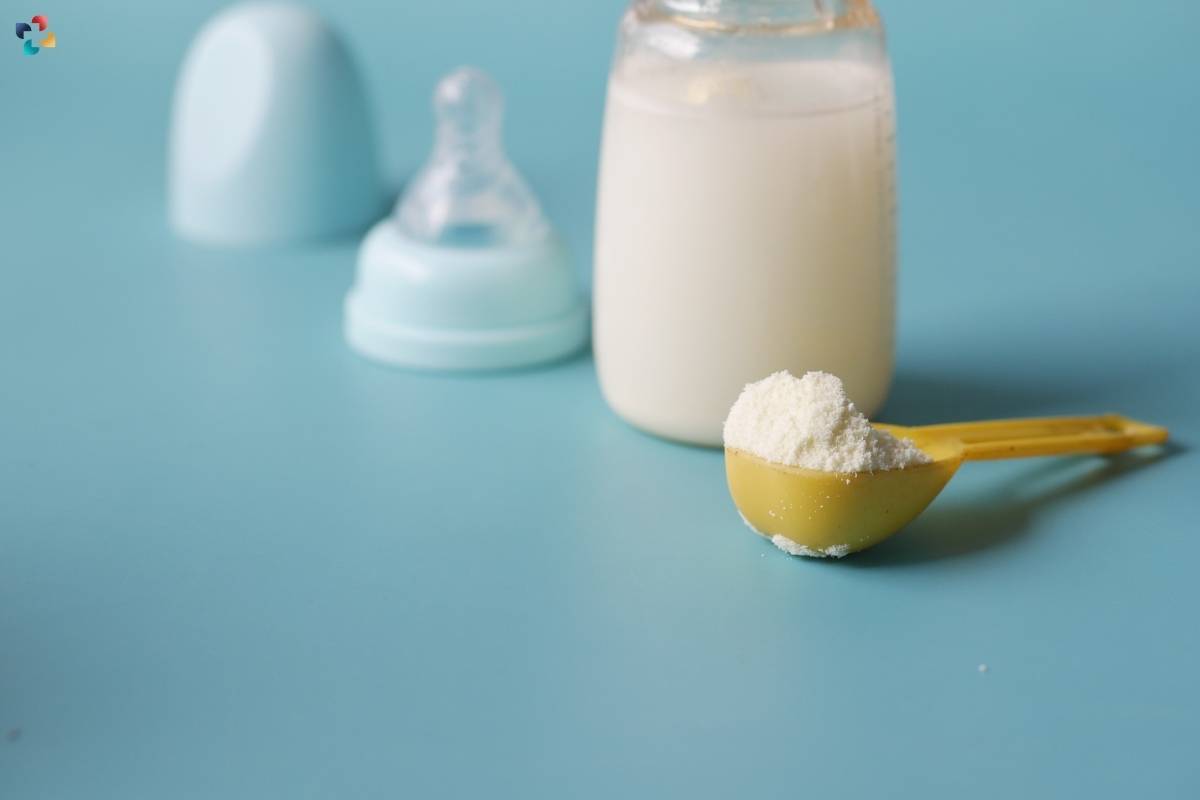Table of Contents
Introduction
The choice between breastfeeding vs. formula feeding is one of the most important decisions parents have to make when caring for their newborn. Both of these options come with their advantages and challenges, and the decision to choose the right method can be influenced by a number of factors. These may also include health considerations, lifestyle and personal preferences, and many more.
In this article we will explore the many differences between breastfeeding vs. formula feeding, and what are the different factors you need to consider when you are making the choice. We will also explore the different challenges that may come along the way.
Understanding the Options
Before delving into the factors that can help you choose between breastfeeding and formula feeding, it’s essential to understand what each option entails.
Breastfeeding

Breastfeeding is the natural way to nourish a newborn. It involves feeding the baby with breast milk produced by the mother’s body. This milk is packed with essential nutrients and antibodies, providing numerous health benefits to the infant. Breastfeeding fosters a unique bonding experience between mother and child and is readily available whenever the baby is hungry.
Formula Feeding
Formula feeding involves providing a specially designed infant formula to the baby. These formulas aim to replicate the nutritional content of breast milk and are available in various types, such as cow’s milk-based, soy-based, or hypoallergenic. Formula feeding offers convenience and flexibility, allowing multiple caregivers to feed the baby, and it doesn’t depend on the mother’s milk supply.
Factors to Consider
Choosing between breastfeeding and formula feeding should be based on a thorough consideration of various factors. Let’s explore some of these essential aspects.
Health Benefits
One of the primary considerations when choosing between breastfeeding vs. formula feeding is the health benefits for both the baby and the mother.
- Breastfeeding: Breast milk is custom-made for your baby, providing essential nutrients, antibodies, and hormones that boost their immune system and overall health. It’s known to reduce the risk of infections, allergies, and certain chronic diseases. Additionally, breastfeeding is linked to lower rates of sudden infant death syndrome (SIDS) and promotes emotional bonding between mother and child.
- Formula Feeding: Infant formulas are carefully designed to provide adequate nutrition for babies. While they may lack some of the unique components found in breast milk, they can offer complete nutrition. Formula feeding can be a suitable option when breastfeeding is not possible or desired.
Convenience
The convenience of feeding is another critical factor to weigh when deciding between breastfeeding and formula feeding.
- Breastfeeding: Breast milk is always available, at the right temperature, and in the perfect quantity. There’s no need for bottle preparation or formula purchase, making it highly convenient during night feedings.
- Formula Feeding: Formula feeding can offer flexibility and convenience, allowing other caregivers to participate in feeding. You can also better track the amount your baby is consuming.
Cost
The financial aspect of infant feeding is something to consider as well.
- Breastfeeding: Breastfeeding is cost-effective as it requires no expenses related to purchasing formula. However, there may be costs associated with nursing bras, breast pumps, and other breastfeeding supplies.
- Formula Feeding: While infant formula can be expensive, it provides flexibility for working parents and others who might not always be available to breastfeed.
Emotional and Psychological Factors

The emotional connection between the parent and the baby is an important consideration.
- Breastfeeding: Breastfeeding fosters a unique bond between mother and child due to the physical closeness and skin-to-skin contact. This close interaction can enhance the emotional connection between the two.
- Formula Feeding: While formula feeding also allows for bonding, it might not provide the same skin-to-skin intimacy. However, it does allow other caregivers to share in feeding, promoting bonding between the baby and other family members.
Lifestyle and Work
Your lifestyle and work situation can significantly influence your choice between breastfeeding and formula feeding.
- Breastfeeding: For mothers who work outside the home, the availability of breastfeeding breaks and a private space for pumping can impact their decision. Some jobs or schedules may make breastfeeding challenging.
- Formula Feeding: Formula feeding can be a more practical choice for working parents who may not have the flexibility for frequent breastfeeding breaks.
Combination Feeding
It’s important to note that you’re not limited to choosing exclusively between breastfeeding vs. formula feeding. Combination feeding, where you use both breast milk and formula, is a viable option. This approach provides flexibility and allows for a balance between the benefits of breast milk and the convenience of formula feeding.
Challenges and Solutions
Each feeding option comes with its challenges, and it’s essential to be aware of these potential difficulties.
Breastfeeding Challenges

- Low Milk Supply: Some mothers may struggle with a low milk supply. To address this, consult a lactation consultant, and consider techniques like increasing nursing frequency or using a breast pump to boost supply.
- Pain or Discomfort: Breastfeeding can cause pain or discomfort, especially in the early stages. Seek assistance from a healthcare professional or lactation consultant to address latch issues and other concerns.
Formula Feeding Challenges
- Sterilization and Preparation: Formula feeding involves careful sterilization of bottles and formula preparation. Make sure to follow instructions meticulously to avoid any contamination risks.
- Expense: Formula feeding can be expensive, but it’s crucial to budget for this cost if you choose this option.
Making the Decision
Ultimately, the choice between breastfeeding vs. formula feeding should align with your family’s unique circumstances and preferences. Both options have their advantages, and your decision can be based on what works best for you and your baby.
When making this choice, consider consulting healthcare professionals, lactation consultants, and other parents who have experience with both options. Your healthcare provider can provide guidance and support as you make your decision.
Support and Resources
Whichever feeding option you choose, seek support and resources to ensure a smooth and successful feeding journey. Local support groups, online communities, and healthcare professionals can offer valuable guidance and assistance throughout your baby’s feeding experience.
Conclusion
Breastfeeding vs. formula feeding is indeed a very important and crucial decision for new parents, and it has to be made with very careful consideration of multiple factors. These include health benefits, convenience, cost and affordability, emotional connections, lifestyle and work. It is important to be aware of the different potential challenges and also seek support if you are facing any difficulty. Remember that the ultimate goal is to provide the best care and nutrition for your baby, regardless of the feeding method you choose.











